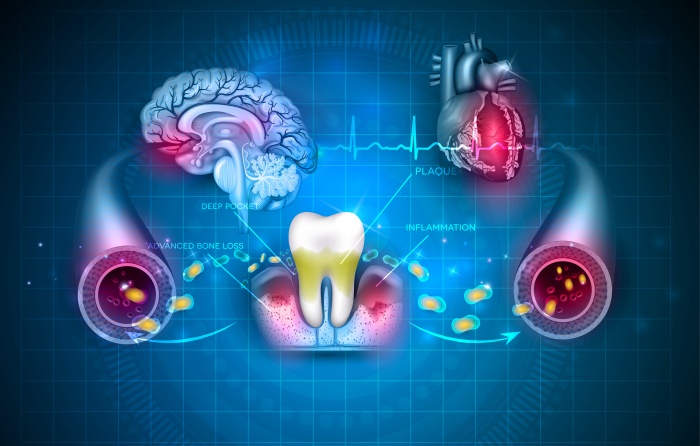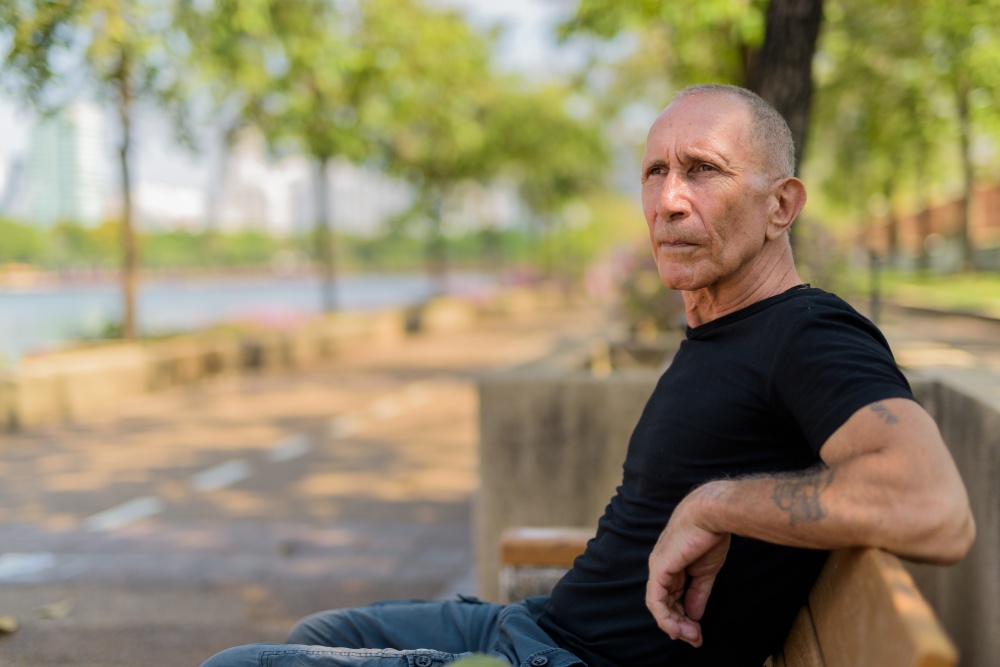Dysphagia After A Stroke
Over 50% of patients are affected by dysphagia after stroke. It is typically characterized by the inability to swallow liquids or foods and can lead to choking. Patients usually tend to recover from post-stroke dysphagia within the first week after suffering from a stroke. However, 11-13% may experience difficulty with swallowing even 6 months after their stroke.
Dysphagia in stroke survivors can vary in severity and may lead to other problems. In fact, 80% of patients who suffer from prolonged dysphasia may have to depend on enteral feeding through alternative means to get their required nutrition.
If you or someone you know needs to know how to overcome dysphagia, all the relevant information is covered below.
Relationship Between Stroke and Dysphagia: What Causes It
There are three types of swallowing actions that occur in the body:
- Subconscious swallowing that occurs around once per minute
- Reflexive swallowing, an airway defense mechanism that is triggered by sudden stimuli
- Nutritional or volitional swallowing that happens when one consumes foods or drinks
When a person takes a nutritional or volitional swallow, the swallowing network in the cerebral cortex is activated. This involves the insula, prefrontal gyrus, cingulate gyrus, somatosensory cortex, and precuneus regions.
A stroke can result in damage to one or more areas within this network as it impacts the brain’s functioning. This can disrupt the swallowing network and have a debilitating effect on the command center which can impair or hinder swallowing.
Dysphagic symptoms are also apparent when the brain’s stem is affected by a stroke, lacunar infarcts, or hemorrhage. Neurological or muscular damage occurring along the deglutitive axes can also cause dysphagia.
Generally speaking, damage to the peripheral cortex or brainstem can lead to nerve damage or muscle damage which can disrupt the body’s ability to swallow.
What Are the Signs and Symptoms of Dysphagia?
Though simply defined as “difficulty with swallowing,” there are several ways in which dysphagia may present itself. Here are some symptoms that may hint towards dysphagia in addition to problems with eating and swallowing:
- Hoarse voice
- Drooling
- Heartburn
- Regurgitation
- Feeling like something is lodged in the throat
- Discomfort in the throat
- Repetitive clearing of the throat
- Deglutitive cough
- Unexpected weight loss
- Pain during eating and swallowing
- Food coming out of the nose
- Coughing or choking when swallowing food or liquids
- Difficulty chewing solid foods
Dysphagia After Stroke Treatment: Why It Is Important?
Dysphagia can majorly impact an individual’s quality of life and difficulty swallowing can have consequences beyond impairments in physical functioning.
Due to the discomfort or difficulty caused by swallowing, dysphagia patients may experience excessive drool which can lead to feelings of awkwardness and embarrassment. It can also make it difficult for patients to speak clearly which can impact their social life.
Additionally, dysphagia can cause patients to become dehydrated and malnourished or develop aversions toward food. If they associate food with discomfort or pain, mealtimes that were previously a source of enjoyment can become something they dread.
They may also feel a sense of incompetency or inadequacy which can cause a lot of emotional and self-esteem issues. It may be difficult to view their inability to swallow as an aftermath of a life-altering stroke.
Instead, patients may view it as a personal failure. They may, therefore, tend to isolate or distance themselves from their social circle and withdraw from their loved ones. This can cause psychological issues such as low self-esteem and depression too.
Lastly, dysphagia can also lead to other health concerns such as recurring pneumonia which can distress a patient further.
Treating and managing dysphagia is thus crucial to ensure that the patient recovers from a stroke emotionally and physically.
What Does Treatment for Dysphagia Entail?
Dysphagia treatment can vary from one patient to the other since it usually depends on the type of dysphagia a person is suffering from.
While a complete cure may be impossible, treatment for dysphagia can help mitigate the damage and improve one’s situation.
Most treatment plans include speech and language therapy to give patients greater control. It can also entail teaching them new swallowing techniques, dietary changes, and changes in feeding methods.
In more severe cases, surgery may also be an option to ensure that the patient can get their required nutrition.
Oropharyngeal Dysphagia Treatment
Oropharyngeal dysphagia is also known as high dysphagia, a condition that affects the mouth or throat region.
The main treatment techniques in high dysphagia involve:
- Speech and swallowing therapy to strengthen and control the muscles
- Modifications in diet to include liquids and other foods with consistencies that are easier to swallow, while maintaining the required level of nutrition
- Use of feeding tubes. This could include a nasogastric tube or a percutaneous endoscopic gastrostomy (PEG) tube
Esophageal Dysphagia Treatment
Also known as low dysphagia, esophageal dysphagia refers to swallowing difficulties that are caused by problems in the esophagus.
Treatment for low dysphagia includes:
- Medication such as proton pump inhibitors
- Botulinum toxin to loosen tightened muscles that are preventing food from reaching the stomach
- Surgery such as endoscopic dilation or inserting a stent
Is Dysphagia Therapy Effective?
While dysphagia typically resolves on its own following a stroke, 11-13% of patients may experience prolonged dysphagia.
This requires treatment or therapy, including exercises, medication, dietary changes, alternative feeding methods, and surgery.
A common concern among patients coping with dysphagia is whether or not treatments are actually effective.
A study sought to establish the effectiveness of applied therapy for treating dysphagia and improving the swallowing function. It was found that the rate of effective swallowing reflex among dysphagia patients increased from 57% to 97% following 15 days of therapy.
It was, therefore, revealed that dysphagia treatments can be highly effective in reducing complications from swallowing disorders.
Conclusion
Dysphagia may not last long after a stroke but it can still severely impact a patient’s well-being and rehabilitation since it hinders their ability to consume foods and liquids. While prolonged dysphasia is relatively uncommon, it can result in complications. Proper treatment with physiotherapy and the other therapies outlined above can help reduce the severity of dysphagia in a patient.
Articles you may be interested in:

Good, Evil,….. and Justice
I believe the hardest thing a human can do is to radically accept unfavorable circumstances. Maybe it's just me, but there is something deep inside every human that craves justice. Not just for ourselves, but for the world. Webster tells me that the definition of...

Exploring the Connection Between Sleep and Weight Loss
An estimated 50 to 70 million people in the U.S. are battling chronic insomnia and sleep disorders. These seemingly harmless conditions brought on by stress, changes in sleep schedules or lifestyles, and medications can be quite disruptive. Over time, it can lead to...

Soothing Stress With Sound Therapy
Seventy-six percent of U.S. adults reported that they experienced at least one symptom of stress in the last month such as headaches, fatigue, nervousness, anxiety, depression, and sadness. It’s easy to see why. Americans are among the most stressed out people in the...

12 Clever Ways To Healthy Eating on a Budget
Inflation and supply-chain disruptions have caused food prices to shoot up more quickly than in previous decades, making every trip to the grocery a costly and tricky affair. Despite the fact that food has become more expensive than ever, the federal minimum wage...

Volunteering: How Helping Others May Impact Overall Health
Volunteering is a pro-social behavior. It’s dedicating your time, attention, and resources toward helping people who are facing hardships in your community with no expectation of any reward or compensation. But there is something in it for you after all. Volunteering...

The Unseen Connection: Oral Health’s Surprising Impact on Heart Health
Did you know that the benefits of maintaining oral health go beyond your mouth? Oral health—the health of your teeth, gums, alveolar bone, etc.—plays a more significant role than you think. Sure, it keeps your gums and teeth clean and healthy. It also helps with basic...

Whispers to Wonders: Unraveling the allure of ASMR
You may have come across the term “ASMR” at least once, particularly if you’ve been on certain corners of social media. Be it TikTok, Instagram, or even YouTube, ASMR videos have been all the rage. Tapping, scratching, whispering, chewing—ASMR (autonomous sensory...

Mind Your Memory: Naturally Nurturing Your Cognitive Strength
Your memory is an intricate tapestry woven with knowledge, experience, and personal history, which forms the cornerstone of human cognition. However, as is the case with any tapestry, your memory will start to wear out with time, and your cognitive health may decline...

Silent Storms: The Atypical Form of Depression You Need to Know More About
Approximately 280 million people suffer from depression on a global scale. The figure is harrowing but doesn’t give you the complete picture because depression isn’t always visible. Sometimes, people experience symptoms related to it but can’t pinpoint what they’re...

Understanding The Link Between L-Theanine and Stress
Introduction Today, stress is one of the leading causes of physical challenges. Yes, what used to be a feeling of tension or a state of mind when faced with a difficult situation can impact you physically and even how you react and handle things emotionally and...

